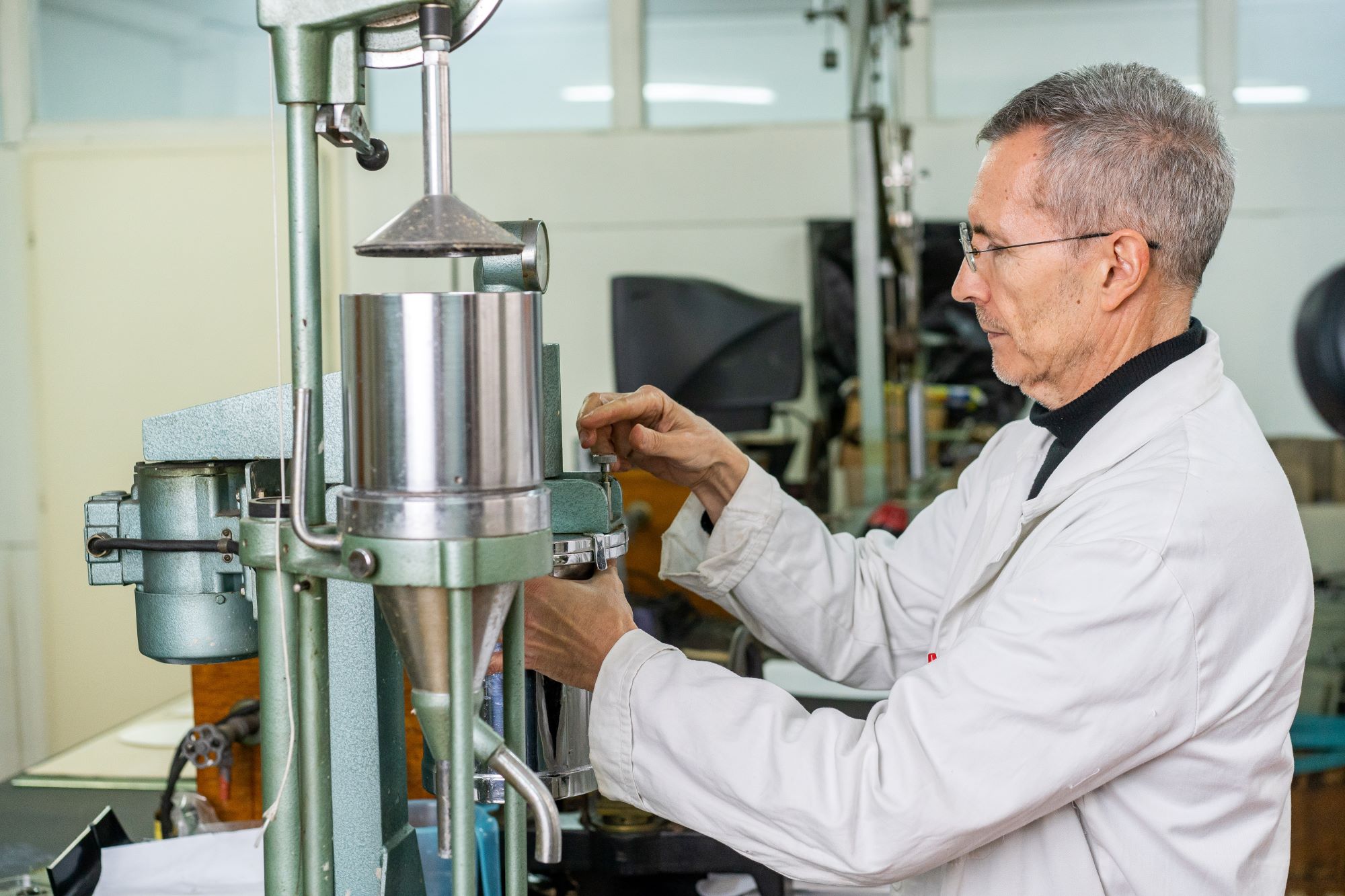Solidarity and preservation of nature woven into paper
September 11, 2024

The organisation for support of persons with developmental disabilities, "Our Home", is located in the Mirijevo district of Belgrade. On the organisation's premises, hard-working young people turn used cigarette packets into a brand new product - high-quality recycled paper. The organisation, run by Anica Spasov, is a harbinger of hope and purpose for young persons with developmental difficulties. Here they have not only found a place to work, but also a community that appreciates their contribution to the pursuit of a sustainable future.
"Our Home" takes a special, innovative approach of recycling cigarette packets into handmade paper. The process is based on an ancient Japanese technique and contributes to the development of circular economy. The beneficiaries of the organisation, Nikola and Miloš, are proud of their work and have described their tasks in simple and clear terms. Nikola runs the paper mill and mixes the paper pulp until it is ready for the next stage of the recycling process. Miloš takes the pulp, carefully moistens and squeezes it, and prepares it for the next step of processing- dewatering and ironing. After 24 hours of drying, the paper is ready for use.
"Our paper is mainly used by artists, graphic designers and marketing agencies for the production of promotional materials. We also had three exhibitions with the most famous local artists who played with our paper in different techniques," says Anica Spasov, the organisation's director.

Anica Spasov, president of ˝Our house˝
The working process in "Our Home" and the way in which paper is produced has recently also attracted the interest of people outside this small workshop. Therefore, a team of professors from the Faculty of Technology and Metallurgy at University of Belgrade is working on making the paper produced by "Our Home" waterproof, but biodegradable so that it can be used for packaging and be recycled several times. To this end, they are using a natural resin that will give the paper a new functionality.
"We had another task, namely to develop a process for manufacturing paper or cellulose pulp products that are used, for example, as egg packaging. The aim was for the beneficiaries of 'Our Home' to be able to mould paper pulp products on smaller, much cheaper machines than those used in industrial production. These products can then be used as packaging," says Predrag Živković, Associate Professor at the Faculty of Technology and Metallurgy.
They came to the conclusion that this can best be achieved through the use of 3D printing. The Global Environment Facility (GEF) made an important contribution to the realisation of this idea, as a 3D printer was purchased with its support. As Professor Živković explains, 3D printing technology will enable the organisation "Our Home" to produce tools and products efficiently and cost-effectively using their own method, handmade, one piece at a time.

Professor Predrag Živković
This fusion of tradition and technology ensures the long-term sustainability of "Our Home" products. In addition to collecting and reducing paper waste, fewer trees are cut, less water and energy are consumed, and the use of plastic packaging is reduced. However, the social aspect of the organisation's work is just as important.
"Unfortunately, our society does not recognise the working capacity of these young people, so most employers will not hire a person with autism, for example. Regardless of affirmative action measures and other laws we have, the topic of work for persons with developmental disabilities is a taboo. And yet a job like this is a huge improvement in their lives. Here they have their own enabling environment, they are part of a group that gives them security and in which they learn from each other, and of course they receive a salary for their work," says Anica Spasov.
She adds that similar organisations were founded this year in Leskovac, Kragujevac, Zaječar, Aranđelovac, Novi Sad and Novi Pazar, and that other cities are planning to do the same.

Miloš, beneficiary of ˝Our house˝
At first, the people from "Our Home" were worried about getting the raw materials they needed for their work. But after sharing their posts on social media, a miracle happened. Through various channels, they received huge amounts of used cigarette packets sent by private individuals, institutions and companies who wanted to support the organisation's work. All this has contributed to the fact that today every sheet of paper produced by "Our Home" tells a story - about solidarity, innovation and a future in which everyone will play a role in creating a more sustainable world.
The solution of "Our Home" and the Faculty of Technology and Metallurgy, which aims to reduce the use of plastic packaging and greenhouse gas emissions, recycle and reuse paper and cardboard, and promote the inclusion of persons with developmental disabilities, was supported as part of the project "Reducing the carbon footprint of local communities by applying the principles of the circular economy in the Republic of Serbia - Circular Communities", implemented by the United Nations Development Programme (UNDP) in partnership with the Ministry of Environmental Protection and with financial support from the Global Environment Facility (GEF)..

 Locations
Locations



